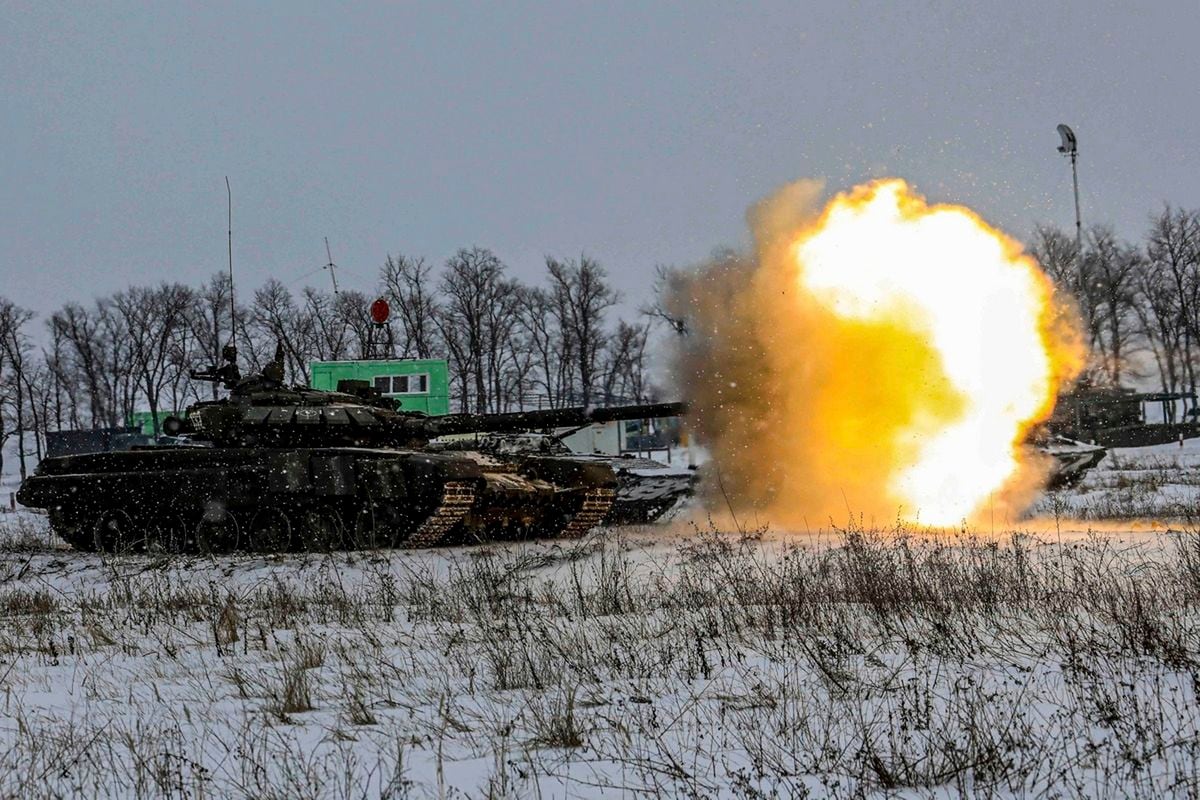Russia's military pressure around Ukraine's borders and the risk of an invasion of that country is forcing the European Union and NATO to modify their agendas and prepare to react quickly to any eventuality.
The shadow of a possible war is already hanging over the two most important meetings of both organizations for this week: a summit with Africa and a defense ministerial, respectively.
In both cases, the agendas prepared months ago will have to be adapted at the last minute to adjust the response of the EU and NATO to the events that occur on Ukrainian territory.
The meeting of NATO defense ministers, this Wednesday and Thursday in Brussels, coincides with the dates that, according to US espionage, could be the ones chosen by Russian President Vladimir Putin to launch an attack with Ukraine.
Moscow has repeatedly denied that it intends to attack its neighbor again, from which it already seized the Crimean peninsula in 2014. But Western allies are wary of Russia and remain on high alert.
The NATO meeting, convened weeks ago by the alliance's secretary general, Jens Stoltenberg, thus becomes almost a crisis cabinet, which could be forced to react on the fly if Putin orders an attack.
The meeting in Brussels also includes, on the second day, a meeting of the defense ministers with representatives of Georgia and Ukraine, the two countries that the Kremlin wants to prevent any rapprochement with NATO.
“Each sovereign nation has the fundamental right to choose its own path.
And we call for this right to be respected”, Stoltenberg said on Monday after receiving Iván Duque, president of Colombia, in Brussels, a country he has defined as his “first partner in Latin America”.
The military tension has also disrupted the plans of the European Union.
"We are living in very volatile times and in view of the situation, the agenda of the president [of the European Commission, Ursula von der Leyen] is undergoing changes," an official spokeswoman for the European Commission acknowledged on Monday.
Von der Leyen has canceled the trips planned for Wednesday, which included his presence in Marburg (Germany) for an event on the need to share vaccines with Africa.
The president will return to Brussels on Tuesday from Strasbourg (France), after chairing the meeting of the Commission at the French headquarters of the European Parliament.
Von der Leyen's team admits that the changes respond to concerns about developments in Ukraine.
Last Friday, according to diplomatic sources, the US shared confidential information with Western allies that would point to a Russian invasion of Ukraine and Wednesday, February 16, as a possible date for the first attack.
NATO's Atlantic Council (where representatives of the 30 allies sit) has been on alert since Friday.
And the European Commission, a key player in commercial retaliation against Russia in the event of aggression, is also on guard for an immediate reaction.
Von der Leyen's chief of staff, Björn Seibert, and the US Undersecretary of State, Wendy Sherman, have resumed this Monday the contacts started on Friday to coordinate the response to Moscow.
After the second conversation with Seibert in three days, Sherman has indicated in a statement that if Moscow continues its escalation "it will be met with enormous and coordinated consequences and with serious costs for the Russian federation."
Brussels and Washington have been coordinating for months a package of sanctions that, according to diplomatic sources, is ready to be applied almost immediately and would reach dimensions unknown until now.
The punishment would range from the financial to the energy or technology sectors.
And its potential impact has forced the EU to prepare contingency plans to alleviate both collateral damage and possible retaliation from Moscow, which could focus on Russian gas supplies, on which various EU partners depend, with Germany among them.
Community sources point out that, if necessary, the sanctions drawn up by the Commission would have to be studied and supported by the leaders of the 27 countries in the European Council.
The President of the Council, Charles Michel, is presiding precisely this week at the EU summit with the African Union.
The meeting on Thursday and Friday had been planned for months and aspires to be a sign of Europe's commitment to the neighboring continent to the south.
Michel maintains, for the moment, the planned plans to receive the African leaders.
But the presence in Brussels of the European heads of state and government, including the Spanish Pedro Sánchez, facilitates, according to European sources, the convening of an extraordinary summit if necessary.
The decision on that emergency meeting will depend on the success or failure of recent diplomatic efforts to dissuade Putin from an attack, in particular, the visit to Moscow on Tuesday by German Chancellor Olaf Scholz.
Follow all the international information on
and
, or in
our weekly newsletter
.
Exclusive content for subscribers
read without limits
subscribe
I'm already a subscriber

